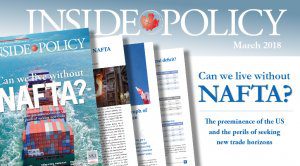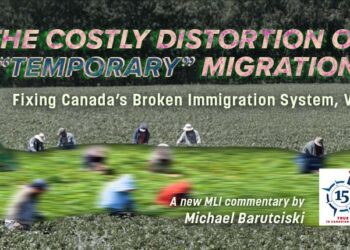 Economic reconciliation is a requirement if First Nation and Indigenous people are to be empowered, writes Carol Anne Hilton.
Economic reconciliation is a requirement if First Nation and Indigenous people are to be empowered, writes Carol Anne Hilton.
By Carol Anne Hilton, April 6, 2018
First Nation economic development has a unique space within Canada. The systemic absence of Indigenous peoples at this country’s economic table over the past 150 years has largely been facilitated through the Indian Act and other exclusionary policies and practices. Today’s new reality is that First Nations are now emerging as economic powerhouses. Equipped with a formidable intent of recognition, and through the establishment of new legal and economic requirements, First Nations are securing our rightful place at the economic table of this country.
This new space at the economic table has been established in the Supreme Court of Canada – to be more precise, 255 times to date. And while costly and time consuming, these court challenges have shown through distinct and specific ways that First Nation rights existed, continue to exist and must be recognized, upheld and implemented.
This new legal and economic space has been the cause of a significant shift in Canada’s approach to Indigenous relations, which has in turn formed the foundation for economic reconciliation today. This shift is characterized by a focus on recognition – that Indigenous self- empowerment, self-government and laws are critical to Canada’s future. Indigenous inclusion and rights must be incorporated in all aspects of this evolving relationship. The economic table has been set. This is Indigenomics.
Economic reconciliation is the space between the lived realities of Indigenous peoples, the need to build understanding of the importance of the evolving Indigenous relationship, and the immediate requirement for progressive actions for economic inclusion. Indigenomics acts as a platform for economic reconciliation.
Recognition frames our modern relationship. We as a country need to understand that legal and economic recognition must come before economic reconciliation. We have to know what it is that we are recognizing before we can reconcile this. In the recent announcement that the government will develop a new “Recognition and Implementation of Indigenous Rights Framework,” the Prime Minister made a defining statement: “We need to get to a place where Indigenous peoples in Canada are in control of their own destiny, and making their own decisions about their future.” Economic reconciliation is an ongoing process that occurs in the context of evolving the Indigenous-Crown relationship.
How can Canada prepare for the evolving $100 billion Indigenous economy when it arrives?
At the centerpiece of this economic table, is the feast bowl of old; “To give new life to Section 35 of the Constitution Act of 1982 which recognizes and affirms Aboriginal and treaty rights.” The progressive Indigenous economic relationship centres around this.
With a rapidly growing Indigenous economy, currently valued at $32 billion, the core question at this economic table must be: How can Canada prepare for the evolving $100 billion Indigenous economy when it arrives? Today this means inclusion and participation in the balance sheet of this country. This is economic reconciliation. The economic table has been set.
It’s time to bring leadership and shape the conversation at this economic table. The conversation needs to shape economic reconciliation through renewed nation-to-nation and government-to-government relationships based on recognition of rights, respect, co-operation, and economic partnership. This is the foundation for transforming economic change. It’s time for progressive actions for Indigenous economic inclusion – to move over, to make space for, to include, to increase participation with the intent to shape Indigenous economic empowerment.
This new economic conversation must bravely ask the key questions of today; ‘What does a supportive climate for Indigenous economic partnership look like?’ or ‘How can the resource development regulatory environment include Indigenous worldviews to better encompass higher environmental standards?’ and ‘What are the specific tools of a new Indigenous fiscal relationship?’ and ‘How specifically can a national Indigenous procurement strategy nurture Indigenous economic growth now?’ Further, ‘In what ways can we address the investment/capital/equity gap in First Nation economic development processes?’ These questions can directly connect to the value chain of this country. These power questions form the heart of the narrative at this modern economic table. This is Indigenous economic design.
The empowered Indigenous relationship can help establish a collective national economic agenda, moving from the risk side of the equation to the cause side of collaborative Indigenous economic prosperity. It’s time to shift from risk to strategic advantage in our evolving Indigenous relationship. Is this the time that Canada will finally get it – that Indigenous peoples are integral to the value chain of this country? Here’s to the next 150 years – let’s sit collectively at the economic table of this country. This is Indigenomics and the time is now. Let’s have the courage to do this together.
Carol Anne Hilton is CEO/Founder of the Indigenomics Institute and CEO of Transformation International.




